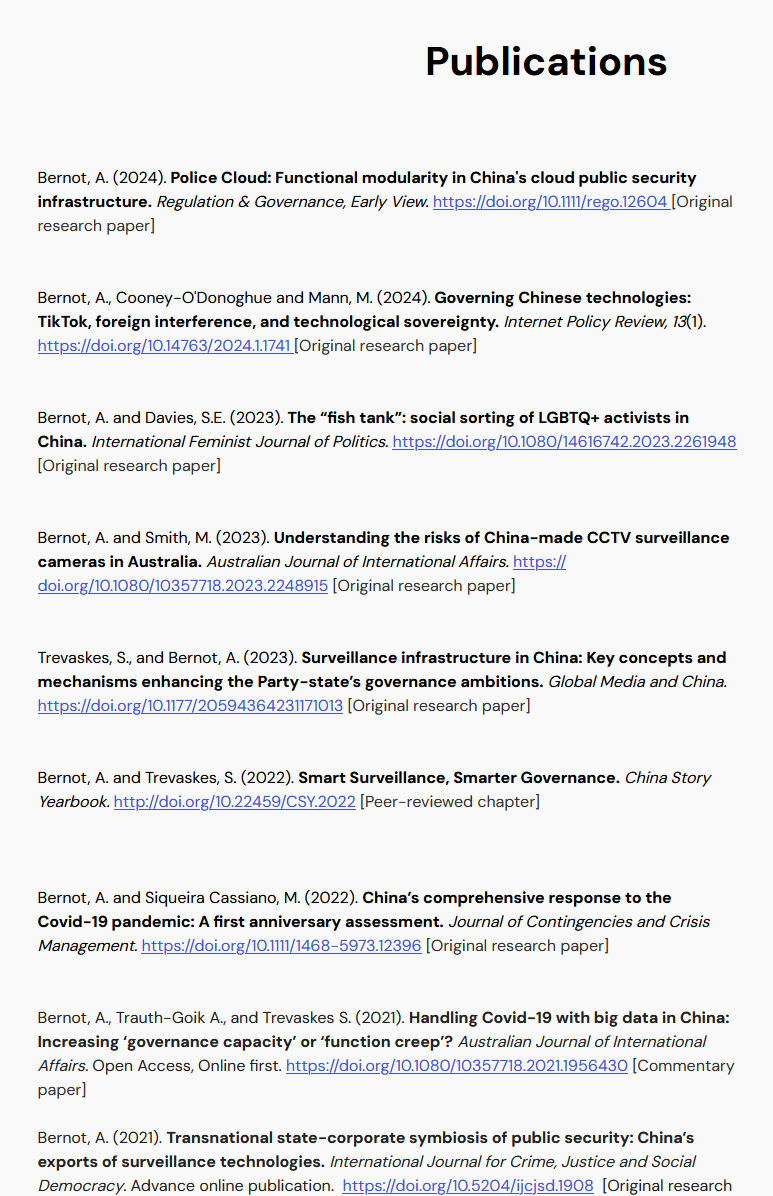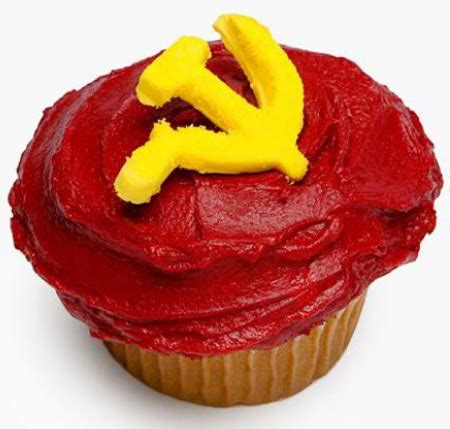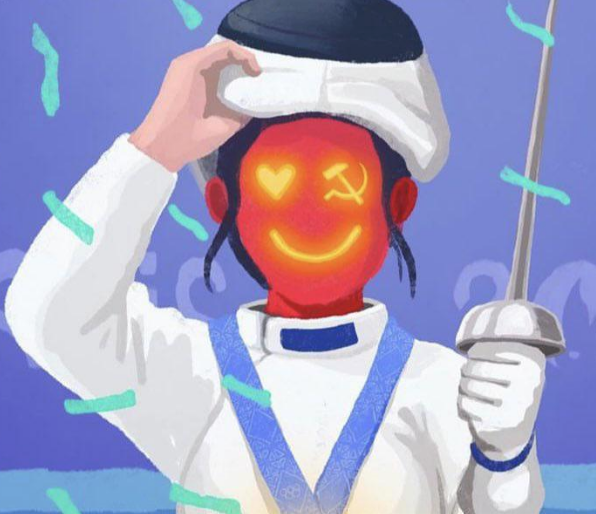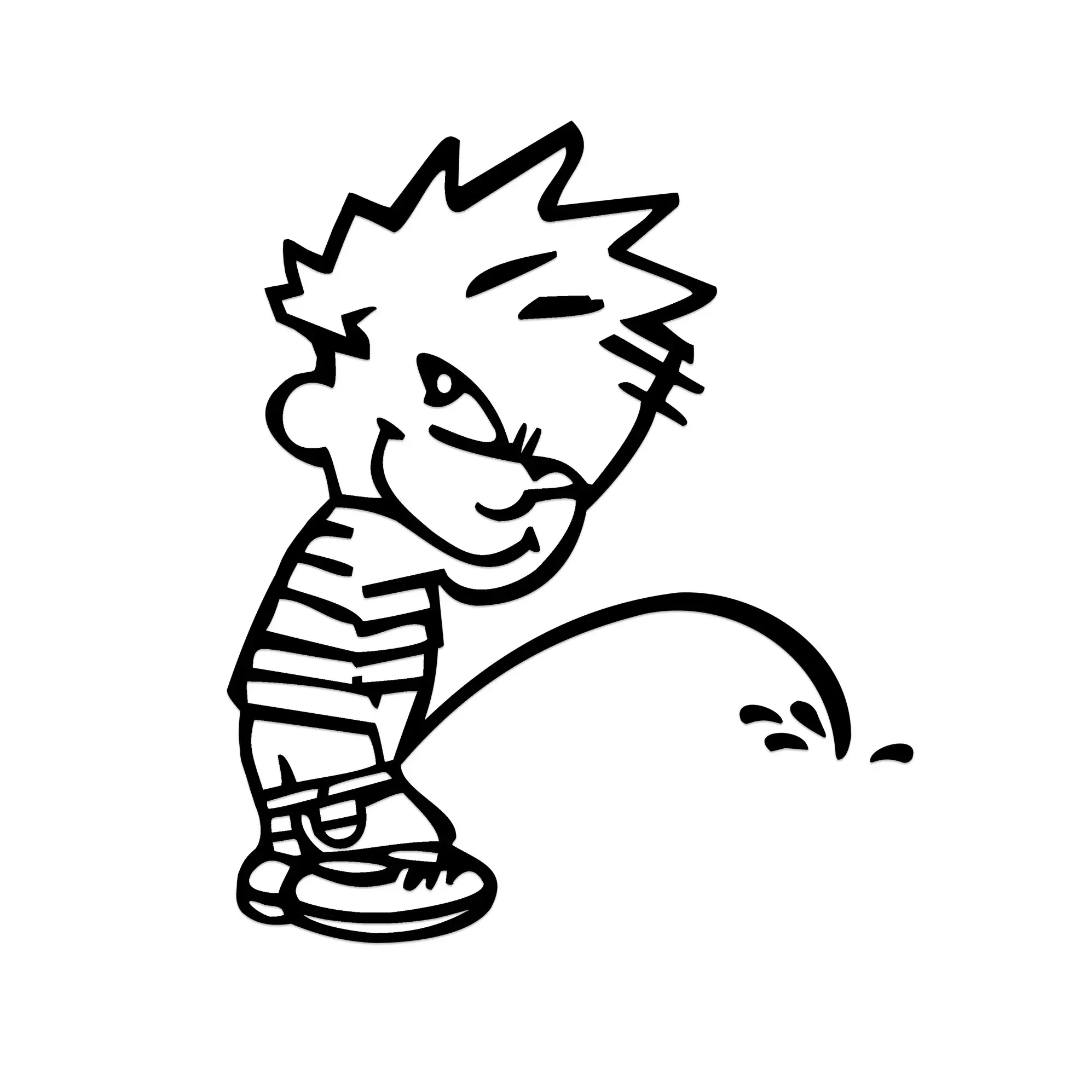The framing of this survey is already based on an American anglocentric cultural ideal of what it means to be "LGBTQ." When examining queer rights and identities abroad, it's essential to not fall prey to hegemonic California queer theory that posits queer liberation involves a universal "coming out" and an acceptance of specific, english identifiers in society.
As Foucault theorized, even in English society the creation of the "homosexual" as an identity, rather than act, is already a relatively recent development. There are countless cultural milieus in which queerness is performed by entirely different standards than those that are accepted by the "progressive west," and many of those cultural milieus don't revolve around a specific coming out narrative or concretized "lifestyles" arrayed by identity tag like in western english "LGBTQ" movements.
The essential markers of queer liberation are legal protections--which the PRC ensures; medical protections--which the PRC ensures; employment protections--which the PRC ensures; economic protections--which the PRC ensures; food security--which the PRC ensures; housing--which the PRC ensures; and safety--which the PRC ensures.
Now what is ensured legally and what plays out in practice are very different--for instance, though HRT is covered in many urban centres, those in smaller cities or in outlying rural provinces struggle to find doctors accepting of gender diversity. This gets worse as people come to expect specific western promises of queer liberation (that, I may add, few western nations ever deliver on themselves). The PRC is still a widely rural and socially conservative (by western standards that don't consider things like food and shelter to be socially progressive) nation, however there is direct evidence that with an improvement in economic conditions within different precincts in the PRC has come a relative increase in the social acceptance of LGBTQ family members and a diminishing of social discrimination.
Queer liberation will not come from pink imperialism, it will come from the emancipation of the impoverished masses, something the PRC is at the forefront of: since the 90s, 60% of all eradicated poverty globally has been China.
Edited to add: https://bmcpublichealth.biomedcentral.com/articles/10.1186/s12889-020-08834-y here is a paper you can read specifically about the increase in queer acceptance as income increases. China isn't perfect by a long shot, but by ensuring their ability to lift the quality of life of their people, by staving off imperialist aggression, they are already doing more for queer people than most places. Is there gay marriage? No, but with increased acceptance that will likely come with time, and if I'm being honest I have a lot of negative things to say about how gay marriage was leveraged in the west to defang a much more vibrant movement for queer rights and fold a large portion of people into the status quo and away from their radical coalition with feminists attacking the institution of marriage itself.
Felt bad about not including some books in this post--I always like to recommend further reading when I can--so I came back to this thread after finishing dinner when I can crack open my library.
China's Path to Development: Against Neoliberalism, Ali Kadri is a great look at the functions of imperialism as a waste-commodity producing system, and Chinese economic development in the face of neoliberal wars of encroachment. (The Accumulation of Waste: A Political Economy of Systemic Destruction is where the theory is most strongly laid out, but the one I recommended gives a decent overview and really hones in on China's refusal of the world neoliberal order.)
For a look at some more cultural explorations of queer identity in China (including Taiwan, which is more accepting of queer people than much of mainland China) from a variety of perspectives both critical and supportive of the CPC:
Transgender China, Howard Chiang
Conditional Spaces: Hong Kong Lesbian Desires and Everyday Life, Denise Tse-Shang Tang
Oral History of Older Gay Men in Hong Kong: Unspoken but Unforgotten, Travis S. K. Kong
Tongzhi: Politics of Same-Sex Eroticism in Chinese Societies, Chou Wah-shan
Tongzhi Living: Men Attracted to Men in Postsocialist China, Tiantian Zheng
Queer TV China: Televisual and Fannish Imaginaries of Gender, Sexuality, and Chineseness, Jamie J. Zhao
Queer/Tongzhi China: New Perspectives on Research, Activism and Media Cultures, Elisabeth L. Engebretsen, William F. Schroeder, Hongwei Bao
Queer China: Lesbian and Gay Literature and Visual Culture Under Postsocialism, Hongwei Bao
Queer Comrades 2018: Gay Identity and Tongzhi Activism in Postsocialist China, Hongwei Bao
Queer Media in China, Hongwei Bao
Boys' Love, Cosplay, and Androgynous Idols: Queer Fan Cultures in Mainland China, Hong Kong, and Taiwan, Maud Lavin, Ling Yang, Jing Jamie Zhao
Maid to Queer: Asian Labor Migration and Female Same-Sex Desires, Francisca Yuenki Lai
Queer Politics and Sexual Modernity in Taiwan, Hans Tao-Ming Huang
Chinese Femininities/Chinese Masculinities: A Reader, Susan Brownell, Jeffrey N. Wasserstrom, Thomas Laqueur is a good background on a lot of the strict gender roles and their historical context that is at play.
Gender Policy and HIV in China: Catalyzing Policy Change, Dr. Qiang Ren, Prof. Baochang Gu, Prof. Xioayin Zheng (this one is more a policy analysis, but gives a lot of insight into sexual policy in China, especially in regards to sex work (which has traditionally been on the fringes of "queer" sexual theorizing).
A Society Without Fathers or Husbands: the Na of China, Cai Hua (not traditionally "queer" per LGBT theorizing, but the Na are a culture in the Himalayan region that practice communal child rearing, which has historically been attacked by Christian colonial missionaries in Turtle Island and abroad as a perverse and "queer" family form that very much falls outside of the cisheteronormative social structure).
this is awesome (both your first comment with thoughts and analysis and also all these reading recommendations), thank you!

Yup, saving this post. Definitely one of the best of hexbear.
I have a few things I would like to reply with here, but I want to start with assuring you that no part of my analysis is meant as any kind of personal attack on individual queer people; I realize this can be a sensitive topic and at times that can cause people to feel defensive about discussions, but what I wrote about is western hegemony not individual western queers. I'm sorry for any feelings of invalidation you may feel.
Secondly, I will say that there is an implication in your response that I am somehow "outside" of the discussion. That is to say, you imply that you are "actual queer" and that I am not and thus have no place to speak about "actual queers." I'm not sure what led to this assumption, but it's nowhere in my text, and any quick follow-up showing the sheer amount I study and recommend queer theory (in this thread and elsewhere) should serve as at least a rudimentary hint that I am very much "inside" the discussion, and don't appreciate your implication that I have no place to make this analysis.
Now, as to your point: when discussing cultural hegemony, the intentions and the desires of the individual are quite literally immaterial: it doesn't matter what individual queer people intend with their language. The hegemonic institutions of western imperialism are pervasive and invasive, and whether a settler intends to participate in the perpetuation of hegemony or not is irrelevant to the fact that the settler inevitably and inescapably does participate in it. From the innocuous application of english identifiers to other cultures (like claiming that hijra, or two-spirit, or travesti, or transsexuelles are transgender) to outright purposeful queer imperialism. It doesn't matter, it all lends to the weight of the cultural hegemony of the english colonial world.
Even within english itself there are hegemonic ideals of queer identity that get reified through repetition: it is no individual's fault, it is just the way that structures of hegemony function. This is how the word transsexual fell out of vogue, how fairy, dyke and transvestite became relics to mainstream queer theory. And that mainstream is led by white academics and the media apparatus of the bourgeoisie, like it or not.
I also have to disagree with your statement that "literally no gay person in the west does that." Queer media (including posts in this very forum) are rife with discussions of the coming out narrative, and in the western queer lexicon someone is gay, for instance. Homosexuality is not an act, it is a way of being. That's not a value judgement, it's just the way that gayness works in the mainstream (hegemonic) western english culture. The identity tags, while they may matter to varying degrees and for varying reasons to different individuals, do serve the purpose in the mainstream culture of informing a reading of a person's every action, whether we desire it or not. If a trans artist writes a song, that becomes a trans song. For example: look at UGLY DEATH NO REDEMPTION ANGEL CURSE I LOVE YOU by Ada Rook. The first song on the album, "im cis" quite literally says "i say none of my songs are about being trans" and yet the first review published about the album spoke about it being a trans album. (Backxwash has talked about this as well, that her album was largely about immigrant experience, racism, and suicidal ideation, but every article about her when she won the Polaris was about "Trans Musician Backxwash.")
On the other hand, plenty of queer people, whether enthusiastically, reluctantly, ironically, or earnestly, contribute to discussions/memes/discourse about being gay or being trans or whatever other label. Again, this is not a value judgement, it is just a thing that I have personally observed and studied (and participated in, because, as I said, the way hegemony works is we are all implicated to varying degrees). It's not inherently a bad thing (and can even be affirming for the participant), but that does mean that the hegemony is continuing to be reasserted. And the real problem is when it gets applied cross-culturally without introspection.
To take it to the way anglo hegemony works: whether you desire it or not, english is the language of the global hegemon. When you use it, when you translate cultural ideas and feelings into english, you are participating in the spread of that hegemony. Things that exist in non-english cultural contexts necessarily undergo transformation to be translated into english to be understood by an english audience. That's the very nature of translation. However, because of the imbalance in power between english (as the colonial language of the global hegemon) and other languages, this is by its very nature a translation that serves to further cultural hegemony.
The point, I suppose, is that settlers perpetuate hegemony whether they wish to or not, whether they are victims of that hegemony or not, and that goes for queer settlers too. (the colonized perpetuate hegemony too, that is its nature, to become instantiated in the society such that it is self-reproducing)
hi, any links to hegemony, are you mostly working off of gramsci? ty in advance
Gramsci for sure, but also Theodor Adorno (especially enjoyed Jargon of Authenticity) and Paolo Freire's Pedagogy of the Oppressed for understanding the ways that oppressive ideology self-reproduces; Albert Memmi's The Colonizer and the Colonized and Decolonization and the Decolonized;
and, more specifically for ways that "dominant queer theory" can erase identities within even domestic movements, Julia Serrano's Excluded: Making Feminist and Queer Movements More Inclusive, Angela Pattatuchi Aragón's Challenging Lesbian Norms: Intersex, Transgender, Intersectional and Queer Perspectives, Sara Ahmed's Queer Phenomenology: Orientations, Objects and Others, and Viviane K. Namaste's Invisible Lives: The Erasure of Transsexual and Transgendered People
For explorations of this type of Western-progressive imperialism: Lila Abu-Lughod's Do Muslim Women Need Saving?, Nada Elia's Greater Than the Sum of Our Parts: Feminism, Inter/Nationalism, and Palestine, Saffo Papantanopoulou's Even a Freak Like You Would Be Safe in Tel Aviv: Transgender Subjects, Wounded Attachments, and the Zionist Economy of Gratitude, and one I massively recommend, Jasbir Puar's Terrorist Assemblages: Homonationalism in Queer Times.
These three are a bit more of a tangent, but Joey L. Mogul, Andrea J. Ritchie, and Kay Whitlock's Queer (In)Justice: The Criminalization of LGBT People in the United States, Dean Spade's Normal Life: Administrative Violence, Critical Trans Politics, and the Limits of Law, and Eric A. Stanley's Captive Genders: Trans Embodiment and the Prison Industrial Complex are all great ways to really get at the heart of how American calls for "trans rights/protections" are often channeled towards increased policing, surveillance, militarized borders, and, ultimately, violence against racialized minorities and especially racialized queer people. From within America, it is essential for analyses of queer rights, and for calls for queer safety, to maintain a deeply rigid and principled stance against co-optation for furthering state violence, which is why any such calls from within the US to examine queerphobia abroad not only minimizes the violence faced domestically, but also serves to strengthen imperialist narratives of the necessity of aggression/destabilization of the state's enemies.
As Foucault theorized, even in English society the creation of the “homosexual” as an identity, rather than act, is already a relatively recent development. There are countless cultural milieus in which queerness is performed by entirely different standards than those that are accepted by the “progressive west,” and many of those cultural milieus don’t revolve around a specific coming out narrative or concretized “lifestyles” arrayed by identity tag like in western english “LGBTQ” movements.
What, exactly, does this have to do with being trans or transphobia?
Because, as far as I know, differing gender expressions are usually identities rather than acts in lots of different cultures (I want to say they always are, but I'm not nearly well read enough to be confident in that!) The trans identity might be how it manifested in the West, but there are these different gender identities all over the world that express themselves in many different ways.
This was more about queerness in a broader sense (the survey in the article also covered sexual minorities as well as gender minorities). The article lumps sexual and gender minorities together throughout (LGBTQ) and so I was addressing sexual and gender discrimination as a whole as well. I know the title was specifically about transphobia, but there was nothing specifically about gender identity separate from sexual orientation in the article itself, aside from saying trans people were the most discriminated against.
I will also add: there actually are cultural contexts in which "gender identity" is an act, meaning the gender role is, quite literally, the role that is currently being engendered, and not an intrinsic/total way of being, but that wasn't specifically what I was addressing, I just kept it as broad as the source material I was replying to.
Ah, okay, that makes sense.
Actually, now that you point it out, lumping gender and sexual minorities together is itself a recent Western development! It's a manifestation of our resistance to cisheteronormative patriarchy within the West specifically, it made sense for us to do it so we could combine our struggles together, but applying it globally is probably going to produce lots of errors.
I will also add: there actually are cultural contexts in which “gender identity” is an act, meaning the gender role is, quite literally, the role that is currently being engendered, and not an intrinsic/total way of being,
Funnily enough, that vibes with how I experience gender. My gender is a performance I do for others so that I fit within the social role I desire. I just don't see enough of a difference to say that being a woman is something I do, rather than someone I am. It's both?
Exactly! Coalitional terminology can be very powerful in building cohesive movements and cross-boundary solidarity, but can serve as a bit of a double-edged sword and lead to a glossing over (or even erasure) of the rich cultural differentiation within (Julia Serrano talks a bit about this in Excluded: Making Feminist and Queer Movements More Inclusive, and Viviane K. Namaste's Invisible Lives: The Erasure of Transsexual and Transgendered People has some really great insights about this, and addresses--in a Canadian context--the way that the dominant trans discourse in Canada is english and thus Canadian legislative and organizational initiatives often reinforce an english framework of transgender that seeks to supplant french transsexualité)
Editing to add: if I'm remembering correctly, Leslie Feinberg's Trans Liberation: Beyond Pink or Blue talks very specifically about the difficulties in forming those coalitional ties in American organizing between trans people and gay people, and the struggle to get gender minorities and sexual minorities to see their oppression and liberation as intrinsically linked.
My gender is a performance I do for others so that I fit within the social role I desire. I just don't see enough of a difference to say that being a woman is something I do, rather than someone I am. It's both?
If you're interested in learning more about the performance and performstivity of gender identities, Judith Butler is a great starting point.
Ausma Bernot: https://www.ausmabernot.com/
Her work has been published in top journals, including "Surveillance & Society", "Intelligence and National Security", and "Internet Policy Review."
questions totalisation of surveillance in China.
Show
This ""researcher"" is a fed. Literally everything they work on and publish is pushing a state department agenda.
I've checked her other writings, they're filled with Australian anti-china brainworms that only come from being a white aussie who uncritically loves the West.
"Even if TikTok and other apps are collecting your data, what are the actual consequences?"
Within China, Douyin complies with strict national content regulation. This includes censoring information about the religious movement Falun Gong and the Tiananmen massacre, among other examples.
This is totally a person whose opinions on China we should take very seriously and even more seriously than actual Chinese queer people from within the diaspora and in China because lgbtq advocacy to the West and many queers who live in the Imperial Core is about "civilizing" socially-backwards peoples into the wonders of hollywood-brand white gays.
- Most those were foreign attached. Things are getting better over there. China has a legit issue with foriegn NGOs trying to mess with the country. Especially given the west is doing a Red Scare and wanting to set up proxies around them.
https://en.wikipedia.org/wiki/Beijing_LGBT_Center
received direct financial support from the Los Angeles LGBT Center
but what's so bad about LGBT communities cooperating internationally?
The US (CIA) uses these NGO to cause problems in these countries. The US loves to use minorities against the US enemies. The US used to "support" LGBTQ+ groups in Venezuela and Cuba, and used them against Chavez and Fidel. The moment Cuba and Venezuela began actually supporting and granting these groups rights, the US and the NGO stopped supporting them.
I remember hearing that a number of lgbt NGO’s disappeared after Georgia passed their law
The fear is that those LGBT organizations might be being used as tools for various intelligence organizations to do intelligence organization stuff. I cant remember any specifics but the CIA has aided some minorities to act against powers they oppose. As much as I want global liberation for my sisters, brothers, and siblings I do recognize how the existence of people like me is cynically weaponized on political stages.
Aside from the way NGOs are often part of a larger complex of foreign intervention, even to take them at face value as attempting to "help" is to buy into an imperialist narrative. It is one of white saviorism, that pushes a hegemonic anglo ideal of queer identity. The idea that there is some inherent "community" between queer people in distinct and discrete cultural milieus is abjectly ahistorical: queer identities are products of the cultural contexts in which they come to exist, and so colonial queer institutions at their most innocent are still trying to spread a domineering hegemony of queerness.
What it is to engage in same-sex desires, what it is to adopt different gender roles: these are not translatable from one cultural context to the next, but in western media/political landscapes it is only by adhering to a specific set of (largely white, middle class, and english) identities can "queerness" be liberated. Which is especially egregious considering how deftly colonialism introduced much of the global systems of discrimination in play today, and strives even now to subsume and erase a multitude of identities both within the imperial core and without. Not to mention the blatant hypocrisy at feigning some higher state of social progression in the west when that is felt only by the economically secure, educated white class of queers.
Just as colonial authorities sought to prescribe universal and immutable identities of "man" and "woman" (which included the act of penile-vaginal intercourse as inherent gender markers) and to vilify all that fell without, queer colonial authorities now seek to prescribe immutable categories of "gay" and "trans" that are completely illegible in most cultural contexts.
For specific and concrete examples of NGOs acting as insidious cultural dominators, I recommend Adnan Hossein's Beyond Emasculation: Pleasure and Power in the Making of hijra in Bangladesh. In the latter half of the book, Hossein addresses the way western NGOs brought trans identity into conflict with hijra lived experiences, and created conflict between those who existed in the cultural context of hijra, and those who now sought to conform to the cultural context of trans. One of the main ways this conflict is perpetuated is by tying international and domestic funding to NGOs that operate with western ideas of LGBT, and thus force Bangladeshi people to vie for recognition and legitimacy under western frameworks that are irreconcilable with many hijra practices and identifiers.
There's no need to be so dramatic, you wouldn't be banned for something like this. You're listening to lemmitors too much.
Well, having a one-post account where this is the one post might draw ire, but I can talk about China being revisionist all day and no one will believe me but I don't so much as get a comment removed.
"China is unfortunately socially conservative" is a common opinion(due to being true) and won't get you banned.
Making an alt to post this however might because it's indicative of trying to stir drama.
Absolutely correct. Good faith criticism of the unfortunate places where AES states have not yet socially progressed is permitted.
Posting this from a 1 hour old account is far more of a suspicious action than posting this from your main. Unless your main is on one of the lib instances that are constantly sending bad faith trolls, of course.
I mean, not constant. But I'm talking about the goofs from instances like lemm.ee or dbzero
You could have picked a less obvious username yah know, I'd more likely to assume you were acting in good faith if you did.
I think lifting millions of LGBT people out of abject poverty has actually massively improved the lives of LGBT people
The same people who introduced the concept of stigmatizing homosexuality to a culture where mlm relationships were common and normal are now accusing that culture of being "socially conservative". Fuck you people if China was actually "socially conservative" it'd have an emperor that fucks men.
what's mlm in this context? I'm guessing it's not marxist-leninist-maoist
I have a lot of eyebrows to crook judgementally at Xiran Jay Zhao but at the very least I'll give them due props for opening my eyes to just how many ancient Chinese emperors were at the VERY LEAST bi kings
The Chinese government claims LGBTQ+ people do not face discrimination in their country
Where do they claim this? China is a socially conservative country, though they don’t obsess with LGBT people like conservatives in the US. I can’t imagine they’re assuring journalists they don’t get discriminated - it seems more in style for them to not talk about it at all.
Hmm. A conservative asian culture with very distinct lines between men and women doesnt like trans people?

Seriously though, im proud of how far China has come, no doubt a large part because of trans and lgbtq activists
no doubt a large part because of trans and lgbtq activists
Almost entirely from, one would expect. The question is which such activists.
I'm really fucking tired of seeing this narrative championed by fed's and then watching people try to justify real transphobia and misogynistic behavior because it's China. Every fucking left of socdem comm on every fucking platform is the same shit: "China's trans people are not the same as in the west; stop applying settler/colonial/anglocentric logic and understating to China's transgender population.".
I want to bring up a few points here, points that I think tell you where China stands when it comes to trans people.
- They have made legal access to HRT extremely difficult; in 2022, online access to estradiol and other HRT is illegal.
- Trans people are first required to get approval from their family before medical transition.
- Most trans people lack supportive family and friends.
- An alarming amount of trans people have experienced violence from their own families.
- There are countless stories about AFAB people being raised as mascs, or in some of their words, as men or men.
I ask of you why there are only two narratives (CIA-sponsored pink-washed anti-China or we must excuse/ignore China's misogyny and transphobia because our cultures differ). Why are we not looking at the actual conditions of trans people in China?
"Is China becoming transphobic?"?
No, it has been due to its misogynistic culture and is only getting worse. IMO partly because of the constant narrative being perpetrated that trans people are some kind of western invention leveraged to wage ideological warfare against China and its allies.
The world is not that binary; we all understand the positive impact that China has on the world, but we also must be honest with one another and ourselves. Trans people deserve better, regardless of what culture we exist in; limiting our access to medical transision, the lack of support from friends and family, and violence create a culture that is toxic and damaging to trans people.
Some sources for the highlighted points:



















